The international city of peace and justice is one of those rare Dutch cities in Randstad that remains away from countless crowds of noisy and disturbing tourists but still has plenty of the good life (and looks!) to offer.
The Hague is laid back but never boring, full of international people while keeping its local touch.
It’s a city made for everyone with a taste for arts and music, willing to explore the typical Dutch features — astonishing canal views, endless bike line stretches, beautiful flower gardens, jolly bars and cuisine from all over the world.
As with all house hunting, your reasons for moving to The Hague — studying, working, or just pleasure — are extremely important in making the choice of where to live!
To cover all of its neighbourhoods properly, we will be marking the pluses and minuses for all three options, helping you answer the question: where should I live in The Hague?
Neighbourhoods of The Hague: City centre – Prinsegracht, Grote Markt, Mauritskade, Malieveld
Good for: young professionals (couples or solo), young families, and business travellers
Not good for: students, people looking for a quiet time
Of course, the city centre is the ultimate spot in any city, and The Hague is no different.
Almost all the popular galleries, museums, and government buildings are here. Every day, and especially on Thursday koopavond evenings (shopping evenings), streets are full of people refreshing their wardrobes, enjoying the countless cafes and restaurants down the covered Passage, Denneweg, close to Plein or the Haagse Bluf.
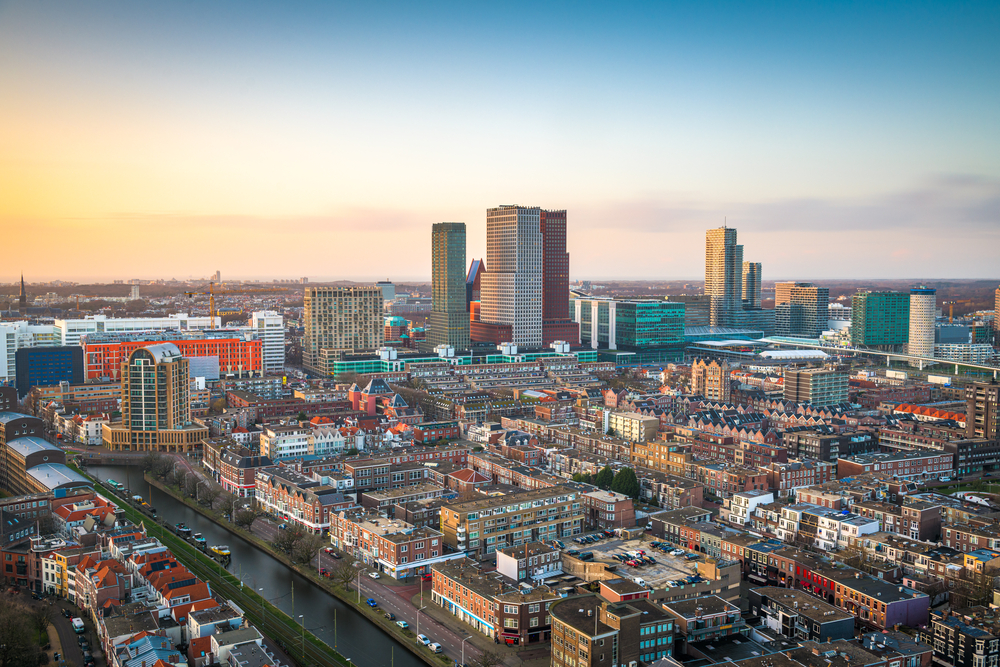
There’s always something to see or do there – on weekends, the streets are often filled with cultural or art festivals. Plein Square hosts plenty of events, for instance, the traditional antique market just in front of the main Parliament building.
It is never boring but also never quiet. If you are a young professional or young couple, you will value the proximity to the busy centre as well as the vicinity of the main train station, and many bus and tram stops, along with plenty of small green areas and the Malieveld park.
The properties are both newly built and older, traditional Dutch houses and apartments. But because of its location, the city centre property prices are often quite high, not to mention how quickly they get occupied.
READ MORE | 7 things you didn’t know about The Hague
You may end up paying an unrealistically high price for a much smaller place, although The Hague still has pretty decent housing prices: both rental and buying.
The city centre may not be the best place to raise small children due to the lack of wider playgrounds, and it is surely not the place to live if you enjoy quiet secluded areas, although you may find hidden treasures in the small back streets.
With its proximity to public transport and located near many key businesses, the centre is also excellently suited for business expats looking for a place to stay during their stint in the Netherlands!
Neighbourhoods of The Hague: Chinatown
Chinatown can hardly be labelled as a town, really – it stretches for just a few streets southeast of the main shopping street, the Grote Markstraat, clearly marked by a large gate with East Asian elements and red lighthouses hanging around.
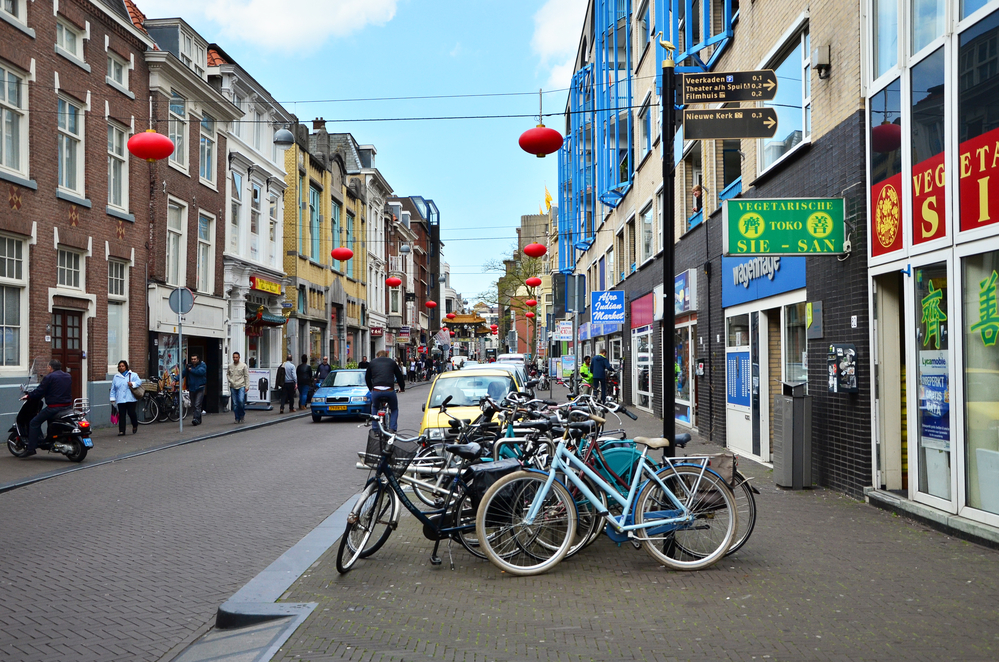
Located in the city centre, Chinatown is a cultural stew, mixing influences from all parts of the world.
It’s a small gulp of air in the otherwise more classy surroundings – tons of world food restaurants and take-away places, small shops with international artefacts, cosmetics, clothes, and meals. It’s also a good place to find affordable accommodation near the centre.
READ MORE | The Hague among 20 best European street food cities (WTF?)
Neighbourhoods of The Hague: Bezuidenhout
Good for: young professionals (solo and couples), families, people looking for some quietness, corporate expats
Not good for: students, people looking for the real Dutch life experience
This part of The Hague is located roughly southeast of the renowned city forest, Haagse Bos, just behind the main train station.
The focal point here is the Theresiastraat, where you can find anything you need in terms of shops, restaurants or entertainment.
READ MORE | The Hague vs. Rotterdam: which is the best Dutch city for expats?
Life revolves around this street, and the whole neighbourhood is full of families with children, lovely playgrounds, quiet, charming side streets, pretty houses of all kinds and many schools and kindergartens.
The Bezuidenhout neighbourhood is just around the corner from the lively centre, yet quiet and secluded.
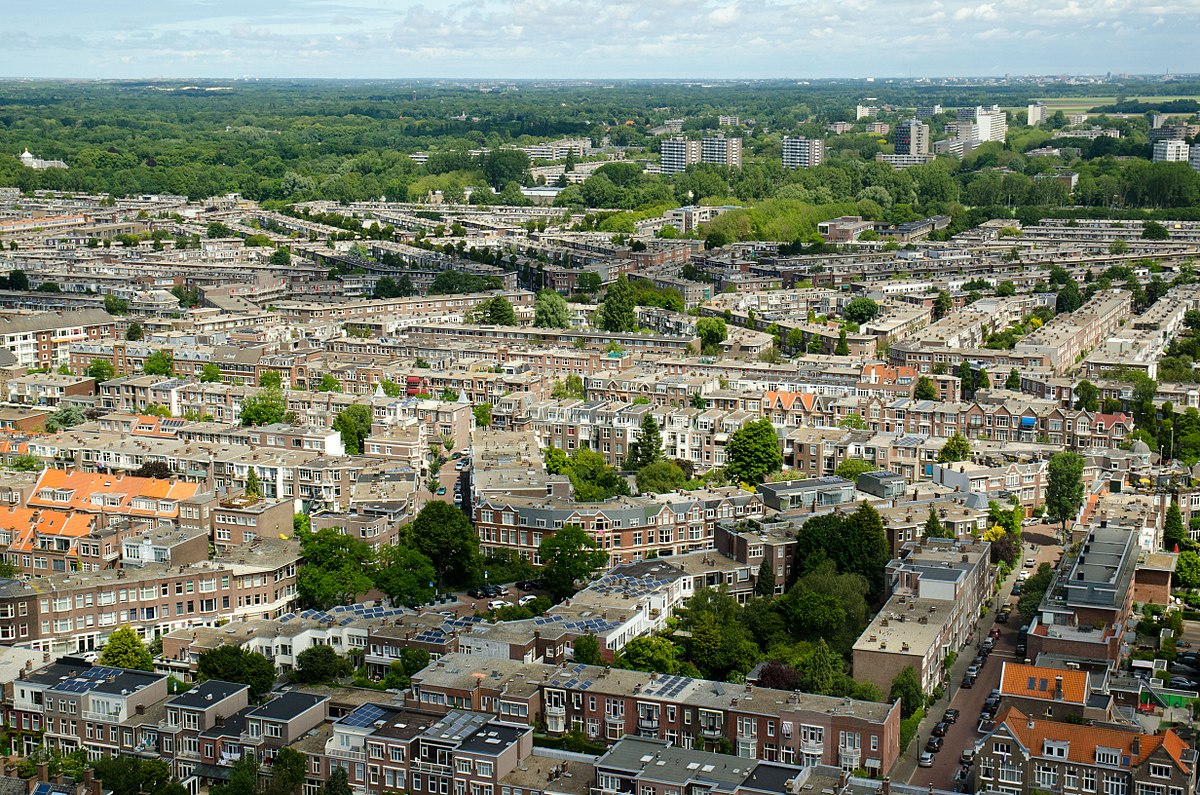
If you’re not just looking for any old accommodation but for a place to really call home – so, most likely to buy rather than to rent – this neighbourhood should be on the top of your list.
But prepare for a battle, whether you are up for te huur (for rent) or te koop (for sale). Prices for both run pretty high as the Bezuidenhout is extremely popular with internationals and expats, which naturally pushes the renting or buying prices to rather unrealistic heights.
For as much as the neighbourhood is a natural fit for families – safe, clean and pleasant, it does require an above-average income. Another downside is that the many internationals living there will deprive you of the true Dutch experience in terms of language and culture.
Neighbourhoods of The Hague: Regentesekwartier (Rond de energiecentrale)
Good for: families, young professionals, people looking for quiet time and business expats
An alternative to the pricey and popular Bezuidenhout area is Regentesekwartier, which was developed around a former power plant.
It offers all the features of an “international neighbourhood” – lively main streets, wide green areas and playgrounds, proximity to the city centre and quietness.
READ MORE | 29 awesome things to do in The Hague in 2023
Recently a few brand new apartment buildings, called the Energiekwartier, have been built on the Loosduinseweg, making this neighbourhood even more attractive for young professionals/families, who will enjoy the comfortable public transport and the accessibility of all sorts of shops.
However, living here has a downside, as the area is still lacking when it comes to bars and cafes as well as art culture. This is a stone’s throw away, in the city centre, but it’s definitely something to keep in mind when choosing a place to live.
READ MORE | Hiking in The Hague: 11 nature spots for the outdoor adventurer
Het Regentesekwartier offers the charm of small side streets and classical Dutch houses, and price-wise is perfect for everyone.
A key feature of the neighbourhood is the large sports centre, De Verademing, which offers open areas for many types of activities. Another definite plus is the mix of people hailing from many different cultures and walks of life, which have made the area their home.
Neighbourhoods of The Hague: Rustenburg, Eykenduinen, Bomenbuurt, Leyenburg, Valkenboskwartier
Good for: families, people looking for quiet time, young professionals
Not good for: people looking for a lively experience
If you’re the type of person who likes the city centre but also likes to have a home away from the fuzz, then any of these five neighbourhoods of the Hague may be just the place for you.
All of them are in the city’s south and southwest, within 5 to 15 minutes away from the centre by convenient public transport and are organized to meet your every need. All main grocery shops and convenience stores are located on a nice little main square.
The nearby main streets offer a plethora of eating places – casual restaurants, takeaways, international cuisine, communal services, often charming boutiques, neighbourhood cafes and farmer shops.
Smaller side streets accommodate larger family houses or the typical three-storey buildings with well-maintained front gardens and quiet inside yards.
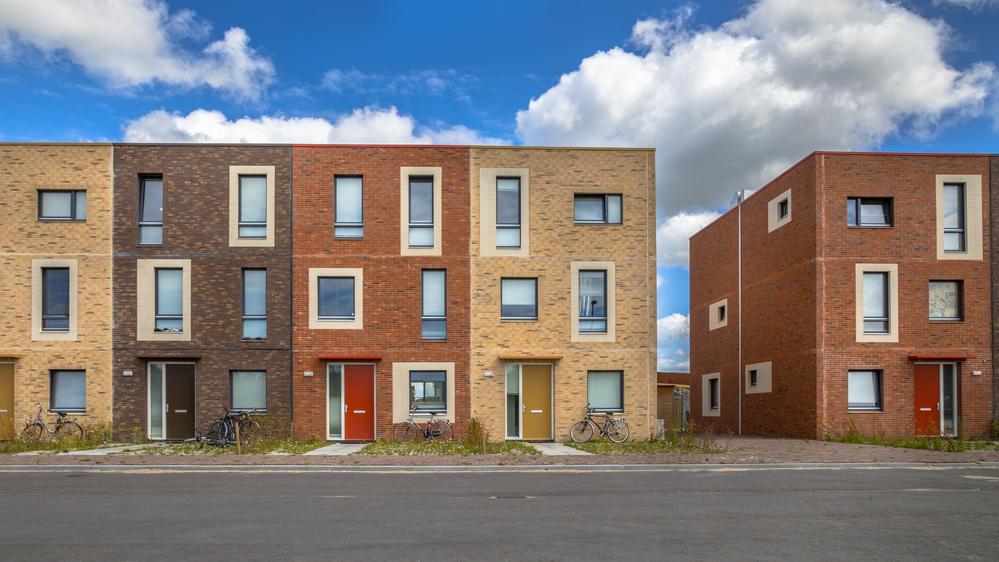
These are the places to get to know the real Dutch life experience in its Hagenaar version – neighbours know each other well and cooperate on different activities or enjoy each other’s company in the many small local bars.
Each of these places has primary schools and well-organized neighbourhood watches, children can enjoy many parks and secured playgrounds.
Particularly lively and worth recommending are the areas around Weimarstraat and Farenheitstraat, forming their own neighbourhoods within the neighbourhood – both contain all a person could need, so much so that people won’t have to leave the quarter for days.
Quiet, clean and organized, these neighbourhoods are made for family life and not for wild and full-of-party student life.
Neighbourhoods of The Hague: Laakhaven-Oost – next to Holland Spoor
Good for: students, young professionals
Not good for: families, people looking for quiet time
Essentially, this is the neighbourhood closest to the Haagse Hogeschool and the second largest train station, Hollands Spoor.
Being so close to the main academic centre of the city, the area is organized around this feature. A prime example stands just next to Hollands Spoor – the newly built high apartment building for students and starters, with basic but comfortable apartments.
The area is full of takeaways, communal service places and convenience shops, both trams and buses stop just outside of the train station and across is the impressively large MegaStores mall with furniture and grocery stores.
The inner court of the university’s building – a lovely modern construction with a small pond in the middle – offers a combination of training centres, shops, and charming cafes. Because of its inhabitants, the area is very lively and young, but mostly around the student buildings.
The larger part of the neighbourhood is in industrial style and has some catching up to do in terms of cleanness and security, but price-wise it is very accessible and interesting as a cultural experience.
Not actual neighbourhoods of The Hague: Scheveningen and Duindorp
Good for: young families, people looking for a quiet time
Not good for: young professionals, students
Where to live in the Hague if you’re a beach lover? The neighbouring town of Scheveningen, which includes Duindorp, is something to look into with its generous green areas and the magic of the sea coast.
Bear in mind that most of the entertainment and larger grocery stores are situated close to the beach or around the promenade, where it is usually full of tourists.
What makes this area unique is that despite the international interest, it is, in fact, pretty calm and quiet on the inner neighbourhood’s streets and nature is excellently preserved.
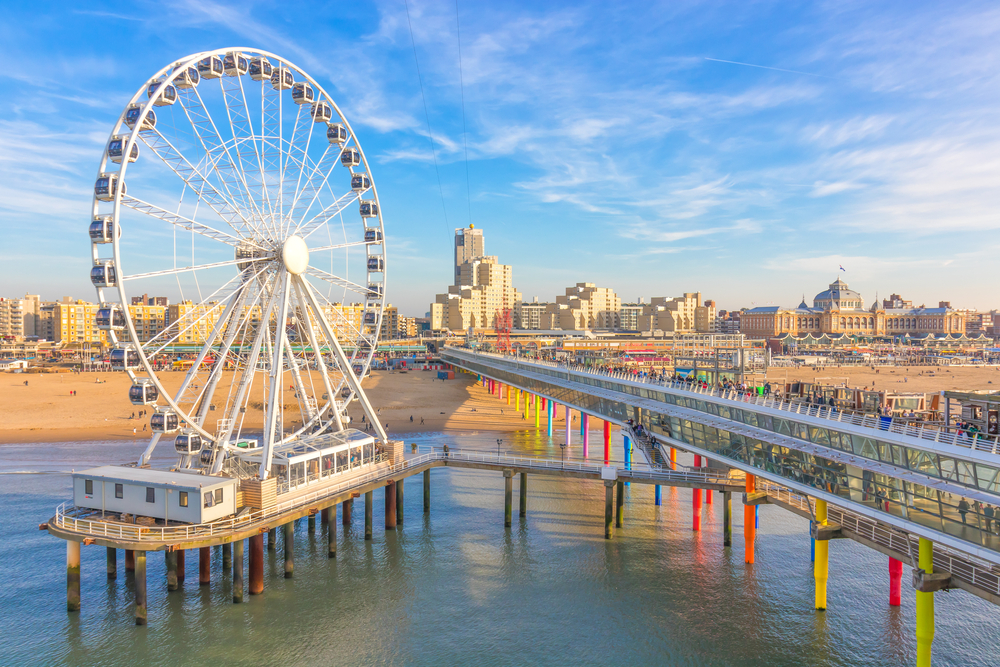
Typical beach apartments are mostly at and around the main promenade in high buildings, whereas family houses are mostly to be found inside Duindorp itself.
Living at or close to the beach is a 5-star experience and comes at a price. Numbers for buying or renting run high here, too and the relative remoteness of the area may not be to the liking of young professionals working in another city or in the centre. Scheveningen and Duindorp are great choices for quiet families who want to live closer to nature.
Neighbourhoods of The Hague: Statenkwartier
Good for: young professionals, families, people looking for a quiet life, corporate expats
Not good for: people looking for the real Dutch life experience
Where to live in The Hague if you’re a diplomat? The Statenkwartier is another part of The Hague, which is ultra-popular with internationals.
Statenkwartier is often called the smartest district of the city as it is home to many embassies, the ICTY, Europol, OPCW and others.
It also offers a good amount of art galleries, museums (Museon, Gemeentemuseum), boutiques and restaurants, especially around its “heart”, the shopping street Frederik Hendriklaan, known simply as “the Fred”.
Without a doubt, this is a clean and organized area, a just fit for families, especially bigger ones, and home to all those expats working for the many international organizations.
It borders the Scheveningse bosjes, a beautiful forest area. It is also close to the beach and well away from the city centre’s noise.
Statenkwartier is a welcoming and secure area, but due to its popularity and types of inhabitants, it is not a cheap choice for living in contrast to the affordability of many other neighbourhoods of The Hague.
READ MORE | 11 of the best free things to do in The Hague
Much like Bezuidenhout, entertainment and convenience in terms of shops are adamant here, but prices may well be too high for students, starters, and even some professionals.
However, due to its proximity to the rest of the Hague and its natural beauty, it may well be the perfect place for any expat to rest their hat after a long day of working in the Netherlands.
Did we miss anything?
Hopefully, we’ve helped you a bit in figuring out where to live in The Hague!
All in all, all the city’s neighbourhoods have something to offer for everyone’s needs and expectations, and that’s what makes this city so great – you will never feel like you are making a compromise with the place you choose as home because each of the good areas of The Hague has its own, unparalleled charm and distinctiveness.
And with all these good aspects of the city, you really can’t do much wrong when it comes to living in the Hague!
Are you looking to move to The Hague? Tell us about your experiences in the comments below!
Editor’s Note: This article was originally published in July 2022 and was fully updated in November 2023 for your reading pleasure.

Notwithstanding what the people there like to say Scheveningen is very much a neighbourhood of The Hague. If it was not, then Statenkwartier would also not be a neighbourhood of The Hague.
And the city centre is of course very suitable or students. I did notice that you mentioned a few streets in the centre and skipped the rest, but There are plenty of areas, mostly in the southeast area of the centre, that have a lot of affordable housing, mostly in de Schilderswijk, though also in Kortenbos, an area that you actually wanted to talk about when you said centre.
[…] Luckily we, the good people at DutchReview, wrote these neighborhood guides to the bigger and better Dutch cities such as these: Amsterdam, Rotterdam, Utrecht and The Hague. […]
[…] If you already picked your city when it comes to the question of where to in the Netherlands than lucky you. because Luckily we the good people at DutchReview wrote these neighborhood guides to the bigger and better Dutch cities such as these: Amsterdam, Rotterdam, Utrecht and The Hague. […]
[…] app was launched on 24th January and has already undergone a successful pilot project, in the Laakkwartier area of The Hague. A total of 450 ‘ORAC’ (aka waste placed besides underground waste disposal containers) […]
[…] or Utrecht. Prices have been on the rise steadily throughout the city but there are still some neighborhoods in The Hague that are awesome and still affordable. So it definitely helps if you know where to look and for […]
How on Earth can you leave out Archipelbuurt and Benoordenhout?
How about you also mention areas in the Hague that people should perhaps avoid staying in because of increased crime rates, or something of the like? But I guess you did say certain keywords here and there that someone who knows what’s what could interpret, just not explicitly.
Well if I was you I would check the areas yourself. This site has mentioned two areas where as a foreignor you really would not want to move to. Duindorp has lots of very nice new flats and houses which is great but strangers are not welcome there. The Schilderswijk is one of the poorest areas around the Hague. They also don’t mention lots of other really nice areas, what’s their agenda I wonder.
You did not mention about amaliastraat and its neighborhoods. What are the rents there for family?